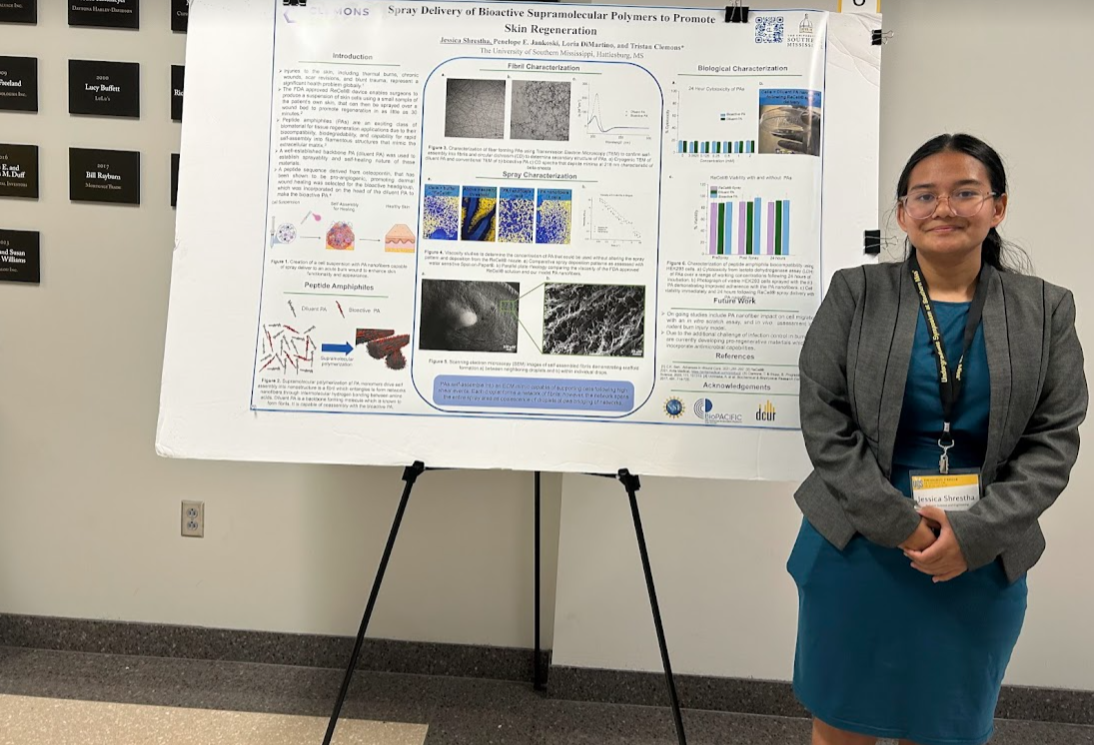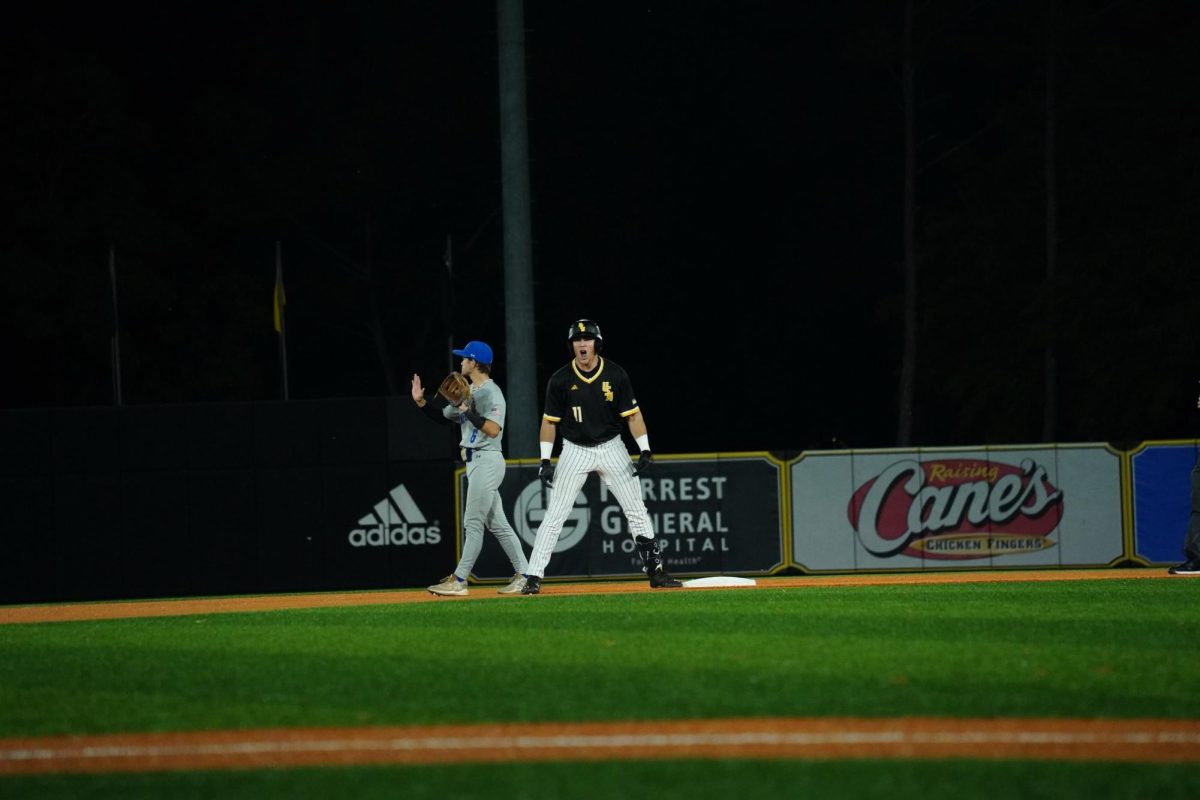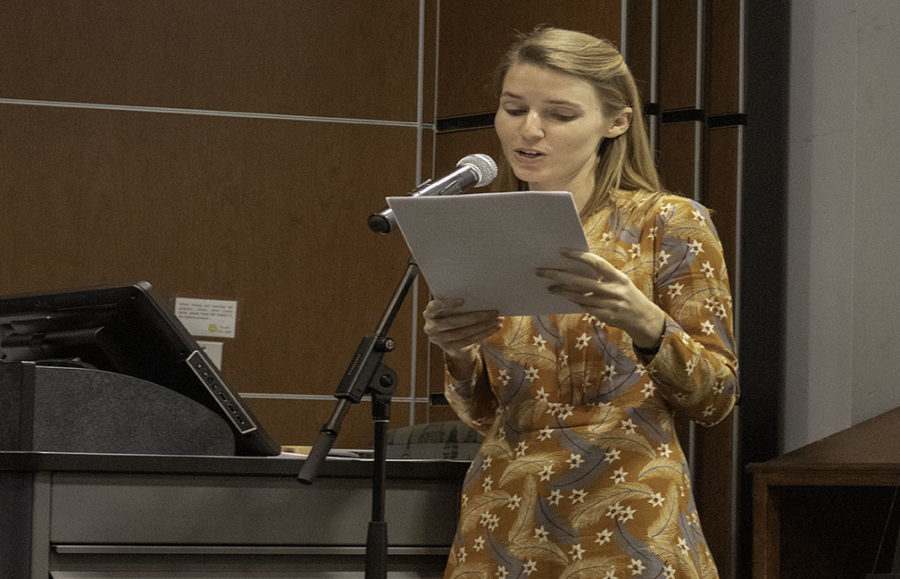Author Katy Simpson Smith gave a reading from a book that she is currently working on in the International Center as a part of the Visiting Writers Series on Thursday, Feb. 7.
Smith is a novelist from Jackson, Miss., with a B.A. in history and film studies from Holyoke College in Massachusetts and a Ph. D. in history from the University of North Carolina.
She has published two historical fiction novels, “Free Men” and “A Story of Land and Sea,” as well as a historical dissertation, “We Have Raised All of You: Motherhood in the South 1750-1835.” She also teaches writing at Millsaps College in Jackson while continuing her work as a novelist.
Olivia Claire, Ph.D., one of the organizers of the Visiting Writers Series, gave an introduction for Smith in which she described her personal view of Smith’s work.
“When you read about Smith’s two novels ‘A Story of Land and Sea,’ and ‘Free Men,’ you’ll read that the prose is lyrical and haunting,” Claire said. “Smith’s historical fiction takes us places that are utterly relevant to our contemporary world, and to me, that is a mark of good writing and the mark, of course, of great historical fiction.”
This view of Smith’s work is echoed throughout the critical world as evidenced by the words of Claire Fallon of the Huffington Post in her 2014 review of Smith’s ‘A Story of Land and Sea.’
“[Historical fiction] writers must walk the line between hewing closely to the crumbling primary sources and dry historical texts that they’ve consulted or giving free rein to their imagination and potentially going too far,” Fallon said. “Few historical novelists, however, are better equipped against these pitfalls than Katy Simpson Smith: never dry, dense or false to the spirit of history, Smith’s novel flawlessly blends the beauty and idealism of American independence with the hypocrisy and devastation that lay beneath it.”
The reading Smith gave was from one of her unpublished novels titled “Weeds,” which she wrote in small pieces during the weekends while teaching as a way to continue her work as a novelist. The structure of the novel is inspired by the structure of “The Flora of the Coliseum,” a record of all the different plant species in the Roman Coliseum published by botanist Richard Deacon in 1855.
“I first heard of it [“The Flora of the Coliseum”] as a footnote in some other history that I was reading, and I thought, ‘This sounds like the structure of a novel,’” Smith said. “Richard Deacon took each species and wrote a paragraph on it, both the botanical makeup and also the historical mystery, culinary uses and any sort of mythological stories attached to the plant, and they’re kind of like little pieces of flash fiction. In my brain, I thought, ‘If I only have one weekend at a time to work on a project, what’s better than to have to write a little flash fiction about a plant?’ And so that’s what I did; I used the form of ‘The Flora of the Coliseum’ to create a narrative.”
After the reading, Smith offered up some advice to writers who are begging to form their own narratives and creative processes.
“Try to write as much as possible in whatever genre and not necessarily focusing on the specific story that you want to write, but writing around it,” Smith said. “Sometimes you can get very stuck on the idea of what you want your story to be, but if you take the time to write poems about it or descriptions of scenes that you might not include, you can actually free your brain up to produce the work that you want to be producing.”






























